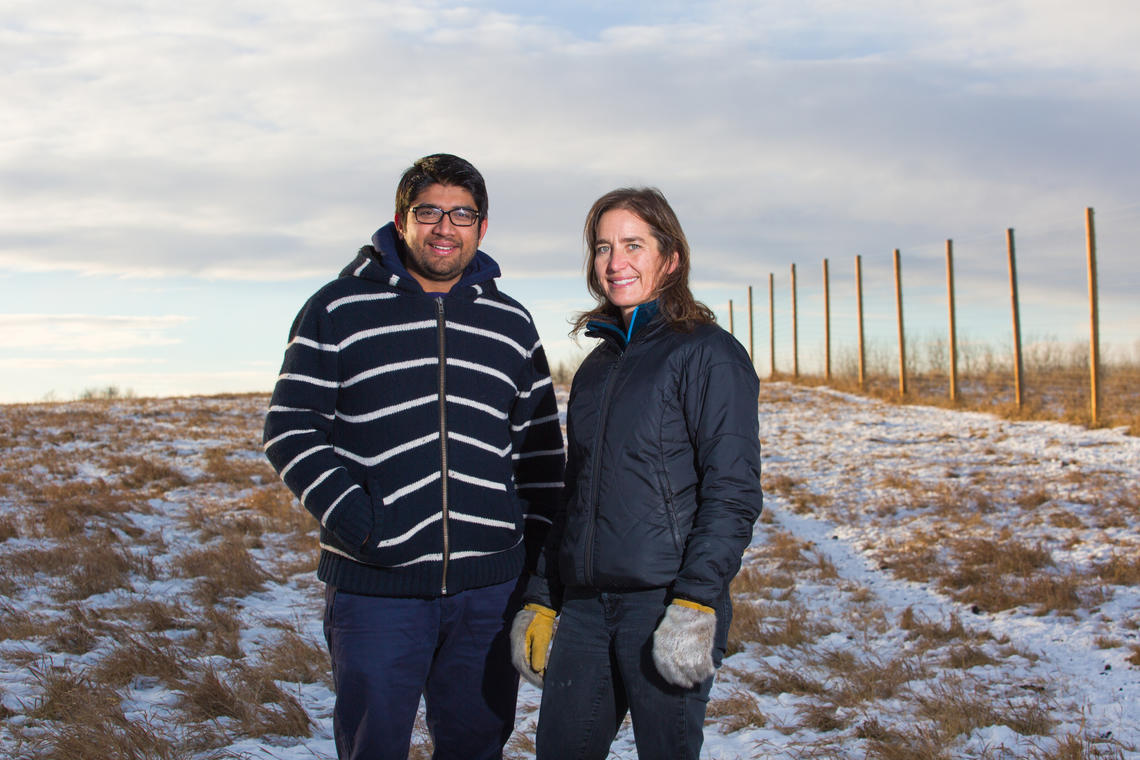
Susan Kutz and Pratap Kafle study the effect of warming temperatures on host-parasite interactions.
Riley Brandt, University of Calgary
Dec. 21, 2015
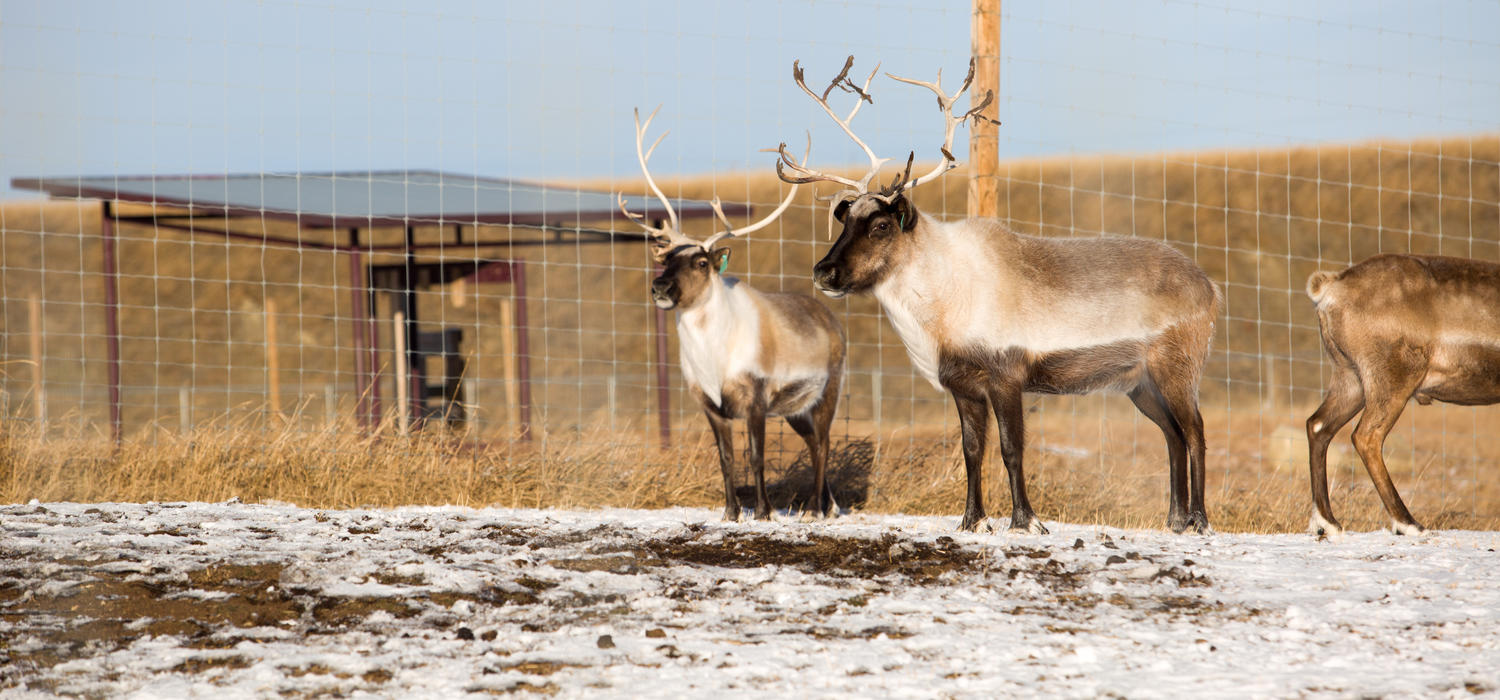
A brisk, refreshing breeze blows over the hills and through the pasture at the University of Calgary’s Wildlife Research Station at the Spyhill Campus. Dotting the horizon are eight not-so-tiny reindeer. Like an early dose of holiday magic, the sight transports you to the frozen North. But while these animals are a treat to look at, there’s more than meets the eye. Underneath all of the fur and velvety antlers lives a parasitic clue that tells researchers Susan Kutz and Pratap Kafle how well the animals are adapting to climate change.

Susan Kutz and Pratap Kafle study the effect of warming temperatures on host-parasite interactions.
Riley Brandt, University of Calgary
Warming Arctic temperatures expand range of parasites
Kutz, who has dedicated nearly two decades of her life to Arctic research, and Kafle, who is currently working towards his PhD, are looking at the changing Arctic climate, specifically the effect that warming Arctic temperatures have on host-parasite interactions in muskoxen, reindeer and caribou.
“We know that the climate is changing rapidly in the Arctic and this has important implications for the parasites of Arctic ungulates,” says Kutz,an associate professor in the University of Calgary Faculty of Veterinary Medicine. “A warming climate can release temperature constraints on parasites, allowing them to expand their range. At the same time, this warming may be detrimental to the hosts that are adapted to cold conditions, and make them more susceptible to parasites and other pathogens.”
Two species of lungworms that infect muskoxen have recently expanded their range onto the Canadian Arctic archipelago. Previously confined to the mainland, these parasites, which require slugs as intermediate hosts, have invaded muskoxen on Victoria Island, Nunavut and have rapidly expanded their range on the island. Kutz and her graduate students are studying the factors that have influenced the invasion, establishment and range expansion of the parasites.
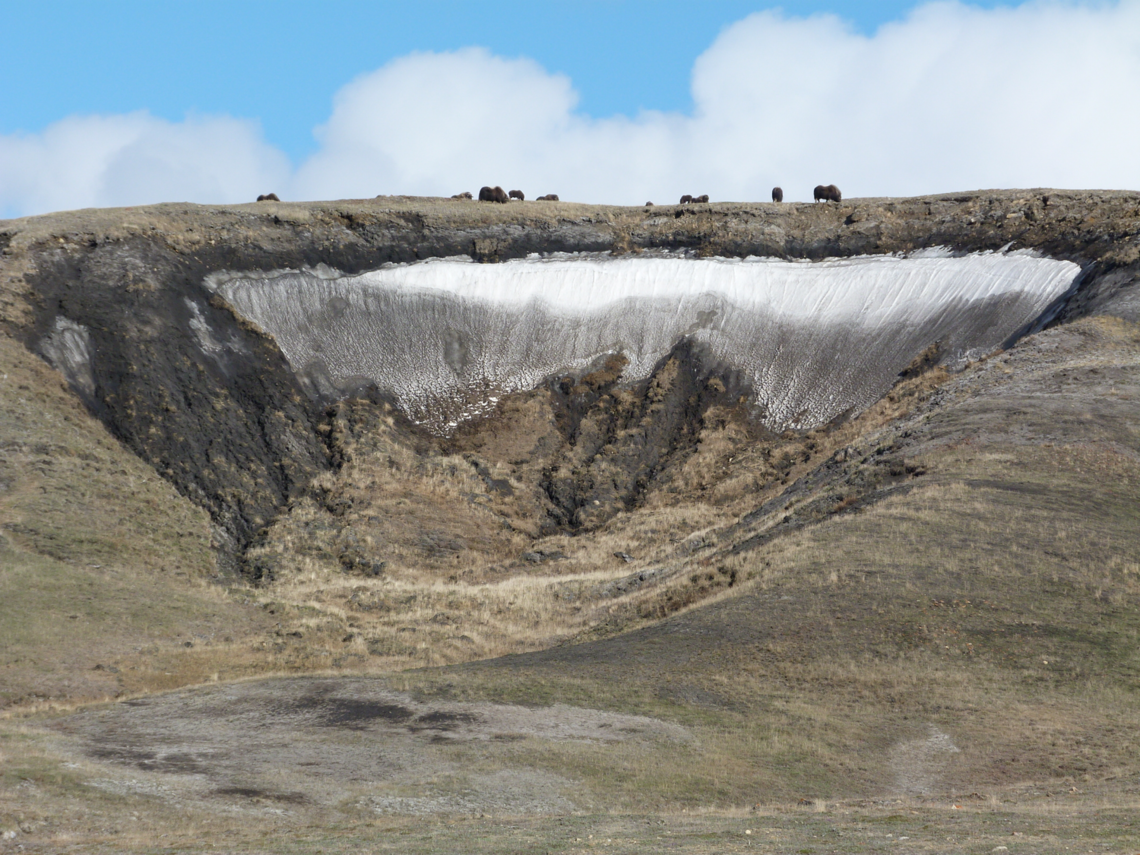
Muskoxen graze at the edge of a permafrost thaw slump.
Susan Kutz, University of Calgary
Why is the lungworm gaining traction in Arctic ungulates?
By monitoring these animals in a controlled environment, Kutz and Kafle are hoping to gain further insight into why the lungworm is starting to gain traction in Arctic ungulates in their native habitat.
“We use the animals here at the Spyhill campus for understanding the life cycles of parasites,” says Kutz. “We have experimentally inoculated the animals and looked at key parameters such as initial infection to when they shed parasite larvae which we then grow in the lab under different temperatures to better understand the impact of climate change.”
First discovered on Victoria Island in 2008, the lungworms have expanded further north and are infecting more Arctic ungulates such as muskoxen and caribou. While these lungworms cannot infect people, an animal infected with lungworm may be more susceptible to other infections and is also at risk of being adversely affected by extreme weather conditions, becoming easy targets for predators.
“Some of our work is looking at temperature constraints and why the parasite has expanded its range, how much further it will go under current conditions and can we predict where it may go in the future,” says Kutz.
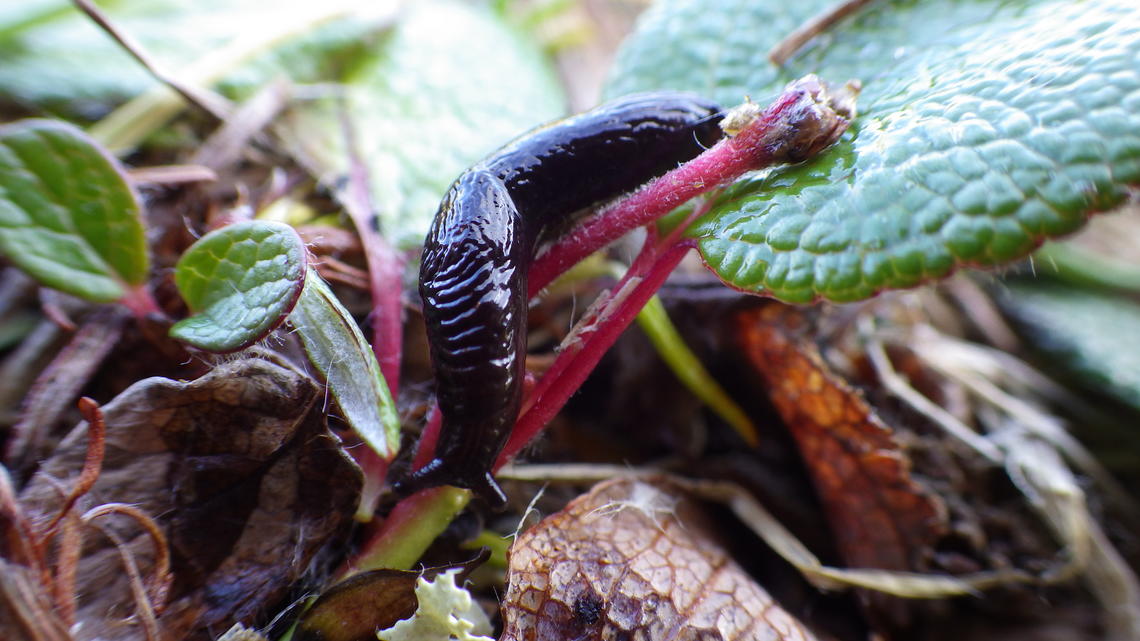
The slug is a hardy creature in the Arctic that serves as an intermediate host for lungworms.
Eric Hoberg, U.S. Department of Agriculture
Question important for species and for welfare of Arctic peoples
The conservation of Arctic ungulates is not only important for protecting these species but is also imperative for the welfare of Arctic peoples who depend on caribou and muskoxen for food and income. The muskoxen are also a focus for cultural activities.
“Many of the wildlife species in the Arctic are key for the Inuit and the Dene people. They depend on these animals for food and the practice of harvesting these animals maintains cultures and traditions that would be lost otherwise,” says Kutz. “A lot of our work is to promote healthy wildlife populations to preserve food safety and food security.”
While controlled research is important, Kutz has high praise for members of the local Arctic communities where she has also been conducting field research. From 2013 to 2015, alone local hunters and big game outfitters provided more than 300 hundred fecal and tissue samples from muskoxen from across Victoria Island and adjacent islands and the mainland. “The more samples that we can get, the more we can understand about the health of these animals, disease risks to people, and how widespread the parasites are.”
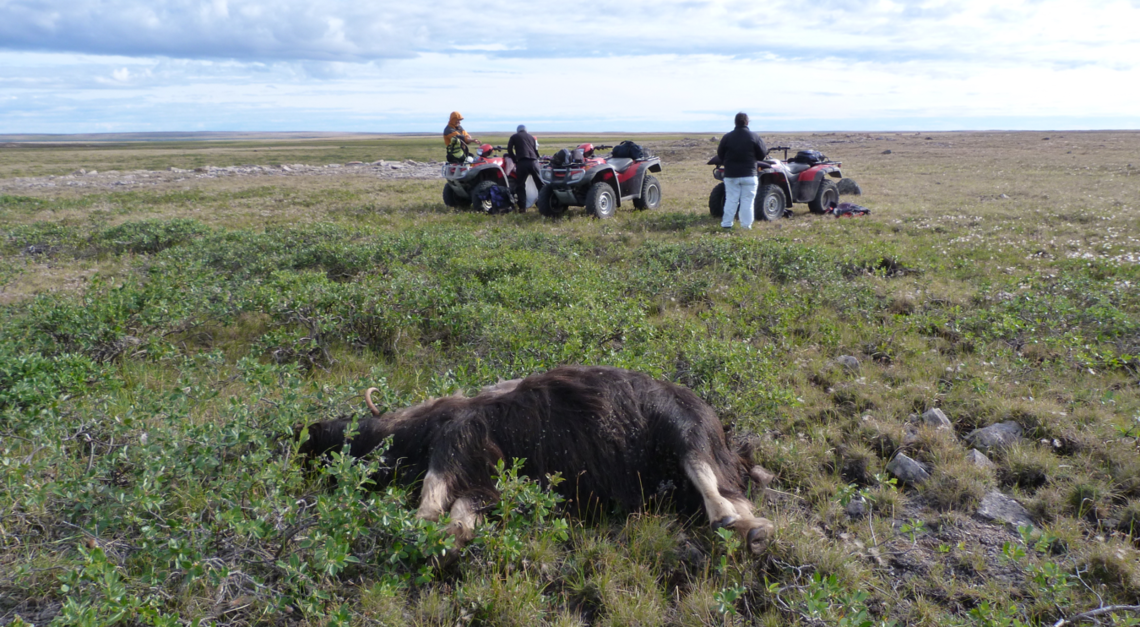
Researchers investigate the death of a muskox on Victoria Island in 2011.
Susan Kutz, University of Calgary
Arctic region a model for understanding global climate change
Another driving force for Kutz is to encourage more research into Arctic ecosystems, specifically when it comes to learning about the effects of climate change.
“Arctic ecosystems are relatively simple compared to temperate and tropical systems, and the rates of climate change are significantly faster and the effects on the physical and biological environment are already visible,” says Kutz. “The Arctic serves as a model system to understand the impact of climate change on host-parasite interactions and disease emergence and can inform our understanding of these issues globally.”
The University of Calgary is uniquely positioned to find solutions to key global challenges. Through the research strategy for Infections, Inflammation, and Chronic Diseases in the Changing Environment (IICD), top scientists lead multidisciplinary teams to understand and prevent the complex factors that threaten our health and economies.
The federal government’s Research Support Fund assists Canadian postsecondary institutions and their affiliated research hospitals and institutes with the expenses associated with managing the research funded by Tri-Council agencies (CIHR, NSERC, and SSHRC). The Research Support Fund helps the university create an environment where researchers can focus on their research, collaborate with colleagues, and translate their discoveries and innovations. Read more about how UCalgary uses the Research Support Fund
Funders and Partners
Partners:
Funders: